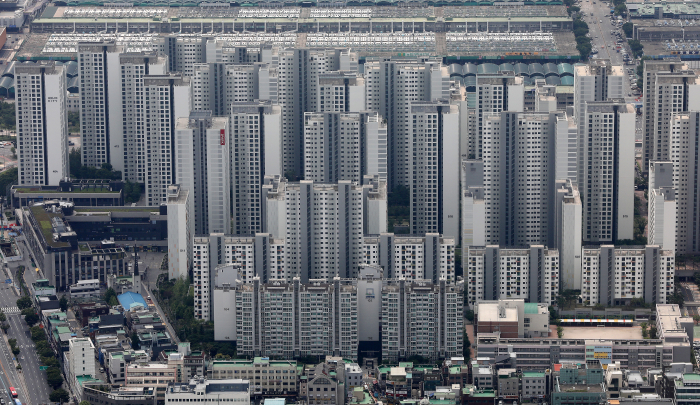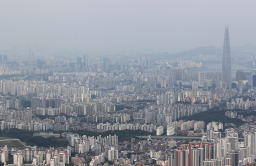-
KOSPI 2812.05 +41.21 +1.49%
-
KOSDAQ 756.23 +6.02 +0.80%
-
KOSPI200 376.54 +6.64 +1.80%
-
USD/KRW 1373 3.00 -0.22%
Moody's sees low risk of burst in S.Korean property bubble
Real estate
Moody's sees low risk of burst in S.Korean property bubble
S.Korea's real estate prices are not seen to have risen more than other Asian countries' over the past decade
By
Dec 07, 2021 (Gmt+09:00)
1
Min read
News+

South Korea's real estate prices have risen at a rapid pace over the past two years, but that would not indicate an increased risk of loan defaults for domestic banks, a Moody's senior analyst said on Tuesday.
In an online media briefing, Moody's Vice President Brian Oak said that compared with other Asian countries, South Korea's real estate prices cannot be said to have soared more over the past decade.
Despite the recent surge in corporate and household debt, the loan-to-value ratio in the country has remained low relative to other Asian countries. Moreover, a majority of the mortgage borrowers are with high credit ratings, which would lower the risk of loan defaults.
But Oak warned of the negative impact of rising interest rates on the banks' bottom lines, since South Korea is among the countries with the highest corporate and household debt against the gross domestic product.
House prices in South Korea have soared by 43% over the past four years from 2017 when President Moon Jae-in took office. That marked the largest growth among presidential administrations since 1995 when the statistics were first compiled.
The average selling price of apartment units in Seoul surpassed the psychologically important 1 billion won ($850,000) mark for the first time in 2020, almost doubling in seven years.
Moody's added that higher interest rates will hit hard non-banking financial services firms, which are already struggling with tightened lending regulations that raised their financing costs.
As a result, non-banking financial services companies such as credit card issuers and insurers will likely ramp up investments in real estate and overseas alternative investments for higher yields, according to Moody's.
The Bank of Korea delivered its two rate hikes this year, each in August and November, pushing the base rate to 1.0% from a record low of 0.5%.
Write to Eun-jung Kim and Hyun-il Lee at kej@hankyung.com
Yeonhee Kim edited this article.
More To Read
-
Jul 23, 2021 (Gmt+09:00)
-
Aug 12, 2020 (Gmt+09:00)



